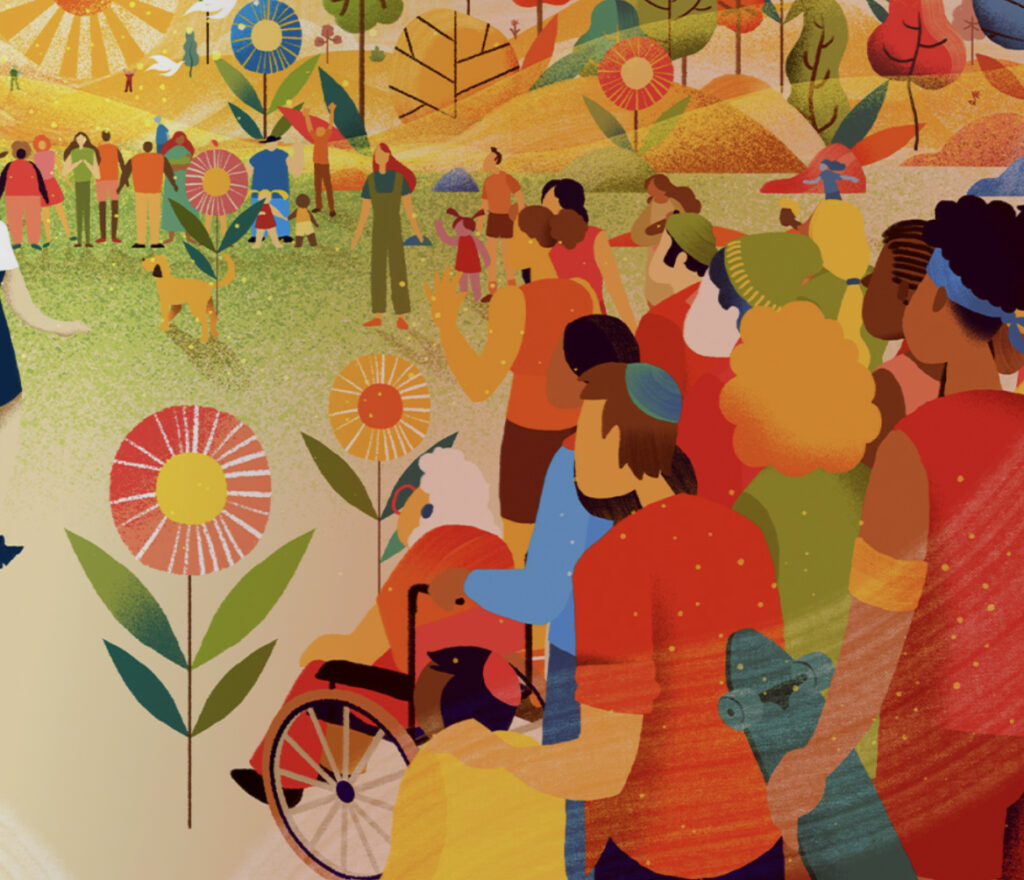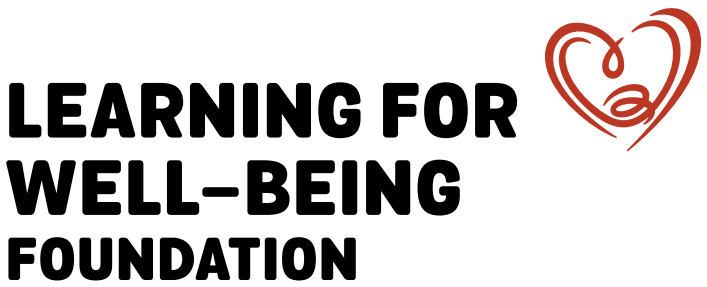Essentials of Learning for Well-being
Nature as our guide
The Learning for Well-being approach is based on a living systems perspective, using nature as its underlying model.
The period of the last fifty years has seen a growing application of systems thinking and systems theory to the overall human experience. With attention on increased levels of globalization, ecological awareness and social, economic, technological interdependence, there has been a shift towards what is called a living systems perspective, encompassing humans and all elements of their environments.
A living systems perspective is distinguished by reflecting the wholeness of nature. The basic premise asserts that life is more accurately viewed as a process, built on relationships and relating, rather than seen as a product or end state. Nature itself, and everything included within that term, works as a living whole system.
Shifting from a mechanistic, fragmented model to an organic perspective can change our view of the way the world works, the nature of reality, our understanding of human functioning within a web of living relationships. All living systems are greater than the sum of their parts and can only be understood through the patterns of interactions that are occurring within the system, in response to both internal and external relationships.
In describing the L4WB approach we focus on some basic understandings about living systems: wholeness, process, purpose, patterns, and diversity.


Defining well-being as dynamic wholeness
Our interest in well-being is rooted in two complementary observations that relate to the living systems perspective. First, many of the challenges we are facing – in our societies, communities, schools, families, and as individuals – relate to the increasing fragmentation and separation experienced in contemporary cultures – the opposite of what the wholeness of nature offers. There has been an increased use of the term well-being in a variety of settings, usually without the term being defined. Our interpretation is that the popular use of “well-being” is a reflection of the desire to experience our own wholeness.
Second, there is the recognition that a well-lived life – a life that we would hope for children – can not be measured by educational achievement, household income, or a narrow self- reported level of satisfaction or happiness. Well-being is a much more dynamic process in which the fullness of what it means to be human is expressed, in context, and in interaction with our fellow humans and the planet on which we live.
Through the lens of dynamic wholeness, L4WB defines well-being as “realizing one’s unique potential through physical, emotional, mental, and spiritual development in relation to self, others, and the environment”. This definition emphasizes that allowing the expression of our undivided and evolving self (unique potential) is at the heart of well-being. We cultivate well-being by exploring our inner resources (knowing ourselves), enhancing relationships with others and encouraging participation in all our environments. There is an implicit focus on developing physical, emotional, mental and spiritual capacities as the process for well-being.
Emphasising inner patterns of functioning
Within the wholeness that is nature, there are micro and macro patterns – cycles, seasons, phases and processes — which interact to generate stable structures, diverse forms, and interdependent actions. The emphasis on patterns relates to a central feature of the L4WB approach: the relationship between one’s unique potential and the intrinsic patterns of functioning that we call inner diversity. We can describe unique potential as a centralizing impulse – the vital energy and qualities that provide meaning, purpose and direction to an individual’s life. Another term for this is the expression of one’s soul.
Inner diversity refers to the fundamental patterns through which we perceive, process and integrate information into an individually organized, and highly personal, representation of the external world. It is through these foundational processes that thoughts, feelings, actions, and beliefs are filtered, organized, and given meaning.
The interactions of the unique potential and the patterns of inner diversity require self-discovery and expression of one’s particular gifts and those qualities that are present from the beginning of life. They represent what is functioning, healthy and alive in the moment. To relate to ourselves, others and the world, we need to understand our own patterns and processes as they unfold throughout life.
The quality of the structures we create in the world is directly connected to the quality of our consciousness, and our ability to engage positively with our ways of functioning, as well as those of others. In making these ideas explicit, we are paralleling the notion of individual and collective competent systems, which can be defined as systems that bring intentionality to working as holistic and conscious processes.


Cultivating Core Capacities
Learning for Well-being focuses on cultivating capacities that support individuals and communities to function as competent systems. Cultivating suggests a quality and action of allowing what is natural to come forward within its own direction and timing. Those of us who identify as “growers” – of plants, people, or organizations – know that the key to successful cultivation is finding the environments and circumstances that support the specific situation, rather than offering a standardized solution to all.
We place the realizing of unique potential at the center of well-being. This resonates for individuals, but it can also be expressed collectively in a group’s shared purpose. By acknowledging the importance of meaning and purpose in every life, we give priority to processes that contribute to the well-being of individuals as well as whole communities and societies. This is particularly critical as we find balance in the relationship between the ‘I’ and the ‘We’ in group actions and decision-making. By focusing on individual differences in our processes we want to highlight the contributions of individuals in the shared experiences of wholeness – not to lose sight of either the individual or the group.
In cultivating capacities for individual and collective systems, we have created an approach that carries both the seeds – purpose (unique potential) and individual patterns (inner diversity) – and ways to cultivate those seeds through the principles and the practice of core capacities. We call this approach Learning for Well-being: cultivating capacities that allow the natural wholeness, inherent in all systems, to emerge and flourish.


